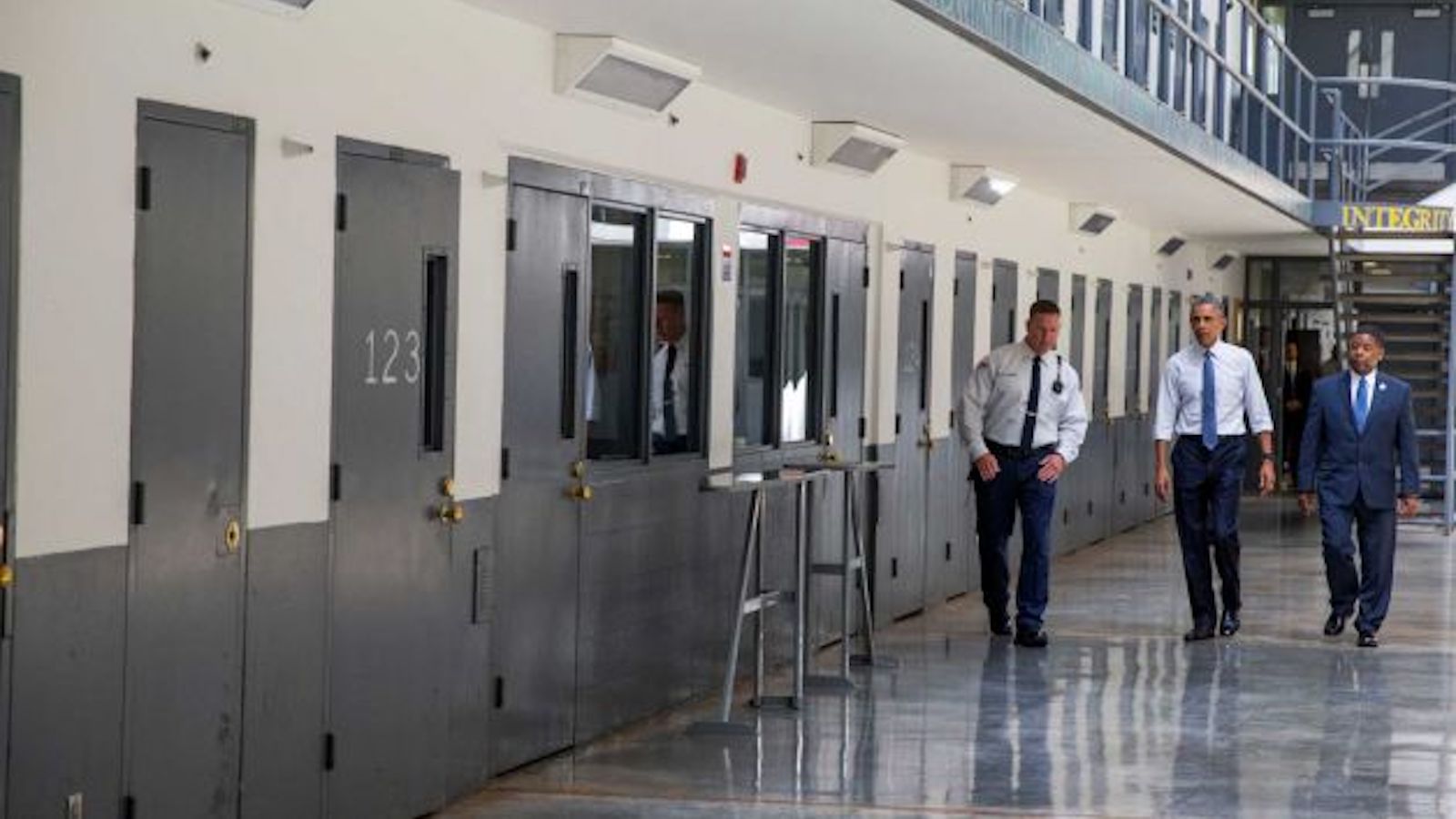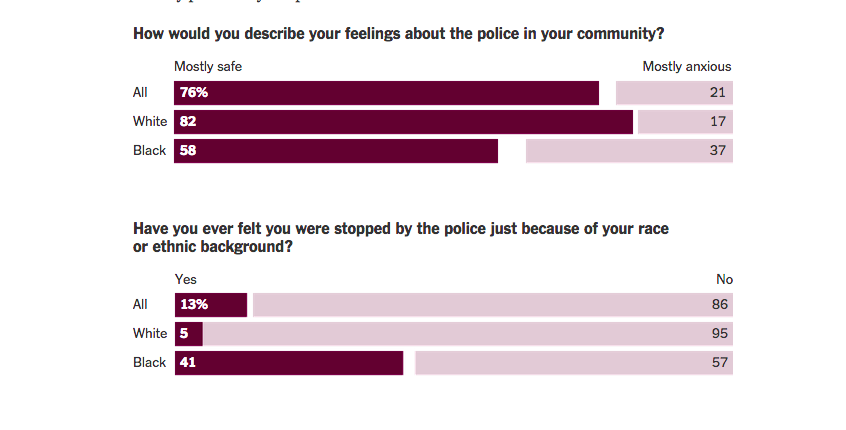
Why Can’t We All Just Get Along? The Sorry State of Race Relations
The headline story last week was as disturbing as it was ironic. The Gallup poll reveals that both blacks and whites think race relations are generally bad, and by wide margins. In general, two thirds of survey respondents say that people are not getting along and that tension is high.
The striking fact: this is the reverse of what people believed in the days after the election of Barack Obama, the nation’s first black president.
American civic culture has always treated the presidency as some kind of mystical pinnacle, a beautiful bellwether of where we are as a people and where we are headed as a country. The idea is that we all look to the great man to set the tone and shape the character of us as a people.
Surely, then, because most everyone but a few trolls wants peace, understanding, and cooperation between blacks and whites, the best path forward is to elect a person of color. Surely that will fix something. Right?
Of course it did not. It’s one thing to observe little improvement in these poll numbers but it is quite something else to see them flip to reveal more despair than ever.
During Mr. Obama’s 2008 campaign, nearly 60 percent of blacks said race relations were generally bad, but that number was cut in half shortly after he won. It has now soared to 68 percent, the highest level of discontent among blacks during the Obama years and close to the numbers recorded in the aftermath of the riots that followed the 1992 acquittal of Los Angeles police officers charged in the beating of Rodney King.
The presumption that a black presidency would repair the U.S. race problem trivializes the on-the-ground reality. It presumes that people will respond to symbolism, to identity, to the perception of a new form of power sharing in society regardless of reality. Something similar is emerging in the case of Hillary Clinton: her womanness will surely bring new forms of gender justice and therefore peace. Based on the experience with Obama, we can look forward to a similar reversal of fortunes here too.
But let’s dig just a bit deeper into the polls, because it reveals something interesting. Though the news was buried in the story, the polls show a huge chasm between people’s macro and micro perceptions. It turns out that when people are asked about their own communities, which is to say their own lives, the picture is much brighter. Fully 77% said that race relations are good at this level — a number that has not changed in 20 years.
In other words, in terms of people’s actual experiences in daily life, we find evidence that both blacks and whites get along pretty well. And what does this mean? How do the races typically encounter each other in their own lives? Mostly it is through commercial settings. Shopping, trading, working, and engaging in all the normal activities of life, people find common interests despite their differences. Or it takes place in our social lives: at our houses of worship, at the community pool, at the neighborhood barbecue. On this very human level, it would appear that matters are relatively fine.
So in what respect do people perceive problems? It is when they reflect on the larger picture, which usually involves perceptions of politics and official institutions. Here is where differences manifest themselves. And in this respect, what has changed so dramatically over the past six years to signal new levels of racial tension? It is in the news every day: it is the treatment of blacks by civic institutions, meaning cops and criminal justice in particular. Here is the real source of the problem.
You can see this in the data too. Here are the charts on how police treat people by race.

These are wide disparities. Among whites, 82% feel safe concerning the police, but only 58% of blacks say the same. Only 5% of whites believe that they have been singled out by police because of their race. Among blacks, 41% believe that — which is very high (but not as high as I might have expected).
The polls are surely affected by the daily barrage of youtube videos coming out that show horrendous treatment of black people by police. For white Americans, this has been a remarkable parade of injustice, causing a serious consciousness raising on the part of every white person I know. Everyone has noticed how much more militarized policing has become over the last decade but the problem is felt particularly intensely by blacks, who are disproportionately harmed by harassment and abuse.
My friend T.K. Coleman, who is black, posted a note a few days ago about his own experience. He and his wife were detained, handcuffed, and questioned for absolutely no reason. His account is harrowing.
He concludes: “There’s this naive idea floating around that people should never be afraid of cops as long as they’re innocent and compliant. For a lot of people in this country, that’s simply not true. … But if we want to have intelligent discussions about authority in this country, we have to stop using a logic that tells us that people in authority always have a fair reason for doing what they do. We do a lot of talking about what people can do to avoid being abused by cops. We don’t talk as much as we should about the abuse that happens to people who follow all those instructions. If we can’t question authority, we are doomed.”
What we can tease out of these polls is the single most striking fact about human relationships. When they are politicized, and when we rely on government to rule our engagements with others, the result is less harmony and more tensions and injustices. But when we let go and let markets and voluntary human associations take over, we see progress toward what most everyone wants, which is peace, harmony, and mutually beneficial engagement.
The implications of this realization are epic. For a hundred years, governments at all levels have been interfering in race relations, favoring or disfavoring one group or another, sometimes in petty ways and other times in egregious ways. In taking this path, governments have done no one any favors. And today, government remains the single biggest obstacle towards a more harmonious social life of inclusion and free association.
In these last days of his presidency, Obama has finally turned his attention to the problem of criminal justice and the horrible problem of prisons. Finally! I have no reason to doubt his sincerity, even if it is too little and too late. To the extent he manages to reform the system, removing the boot from the neck just a bit, he will have made his greatest contribution toward racial reconciliation.
In the long run, no one benefits from top-down rule. If we are to forge good lives and good communities for ourselves, it is going to be by deferring to the emergent process of social and economic engagement, one person at a time. Governments divide people; markets bring us together.
Free the People publishes opinion-based articles from contributing writers. The opinions and ideas expressed do not always reflect the opinions and ideas that Free the People endorses. We believe in free speech, and in providing a platform for open dialogue. Feel free to leave a comment.




Randy L. Camper
Whatever else I may think or believe about President Barack Obama, he had an opportunity that no other president before him ever had. He could have acted to bring true hope & positive change to America, especially when it comes to relations between Black & White Americans. He could have initiated a National Conversation on Race, addressing many of the issues that have recently arisen long before they came to national attention through violence…along with many issues that have been too long ignored.
Instead, he chose a different course, a racist and reactionary course, that has left a greater racial divide than we have seen in decades. Its almost as if he wanted to strike back at America rather than healing our nation.
The results of this will take years, if not decades, to heal!